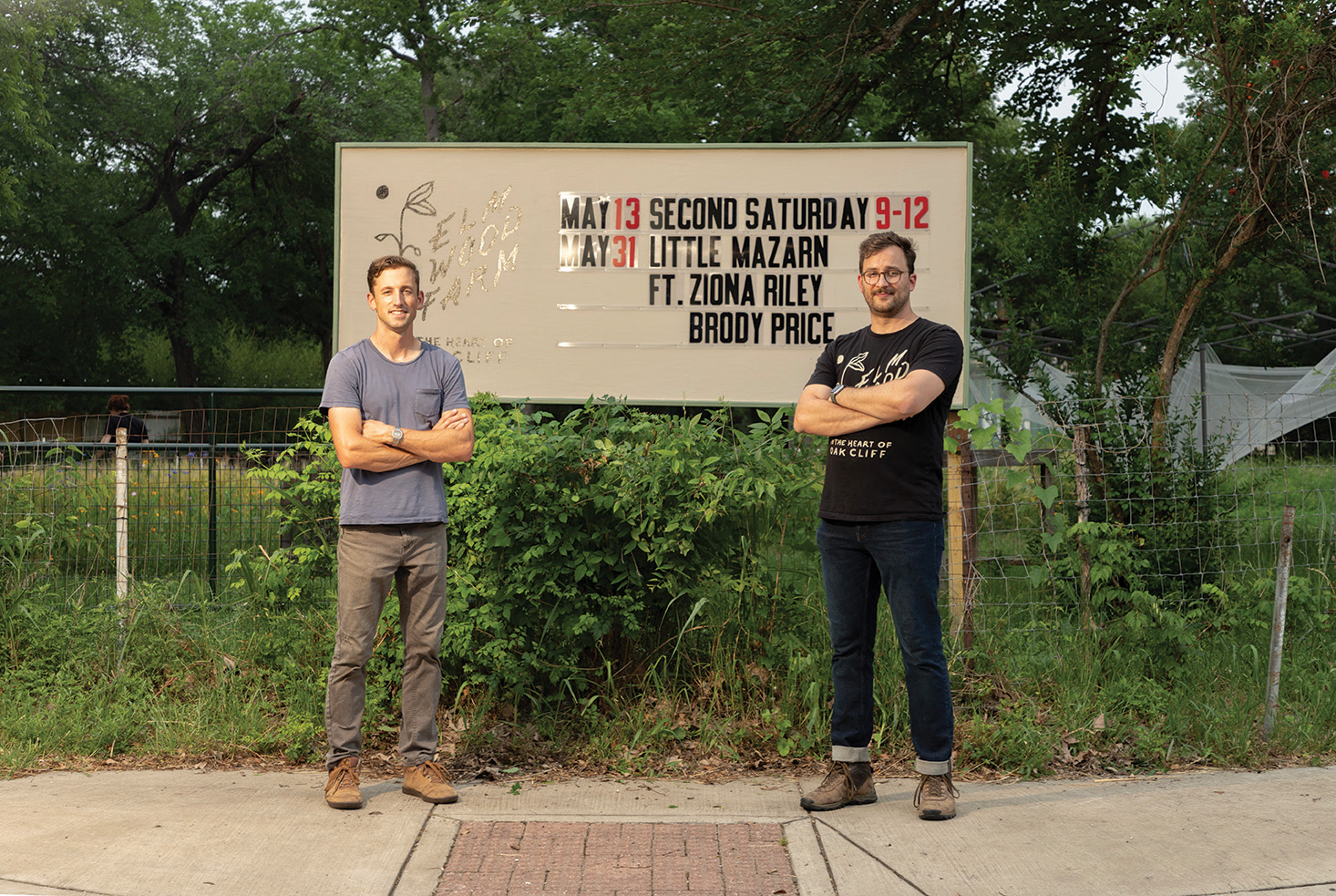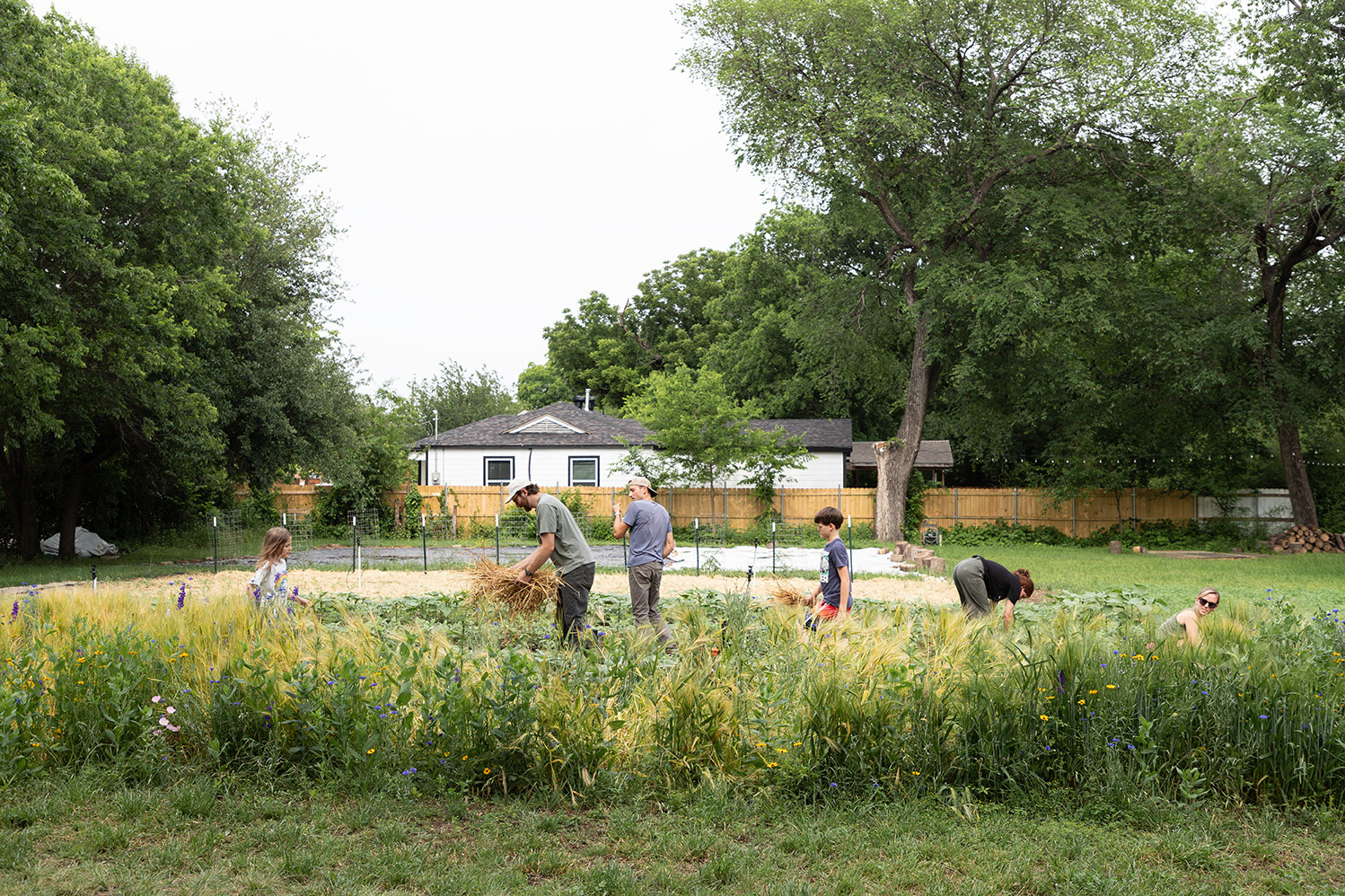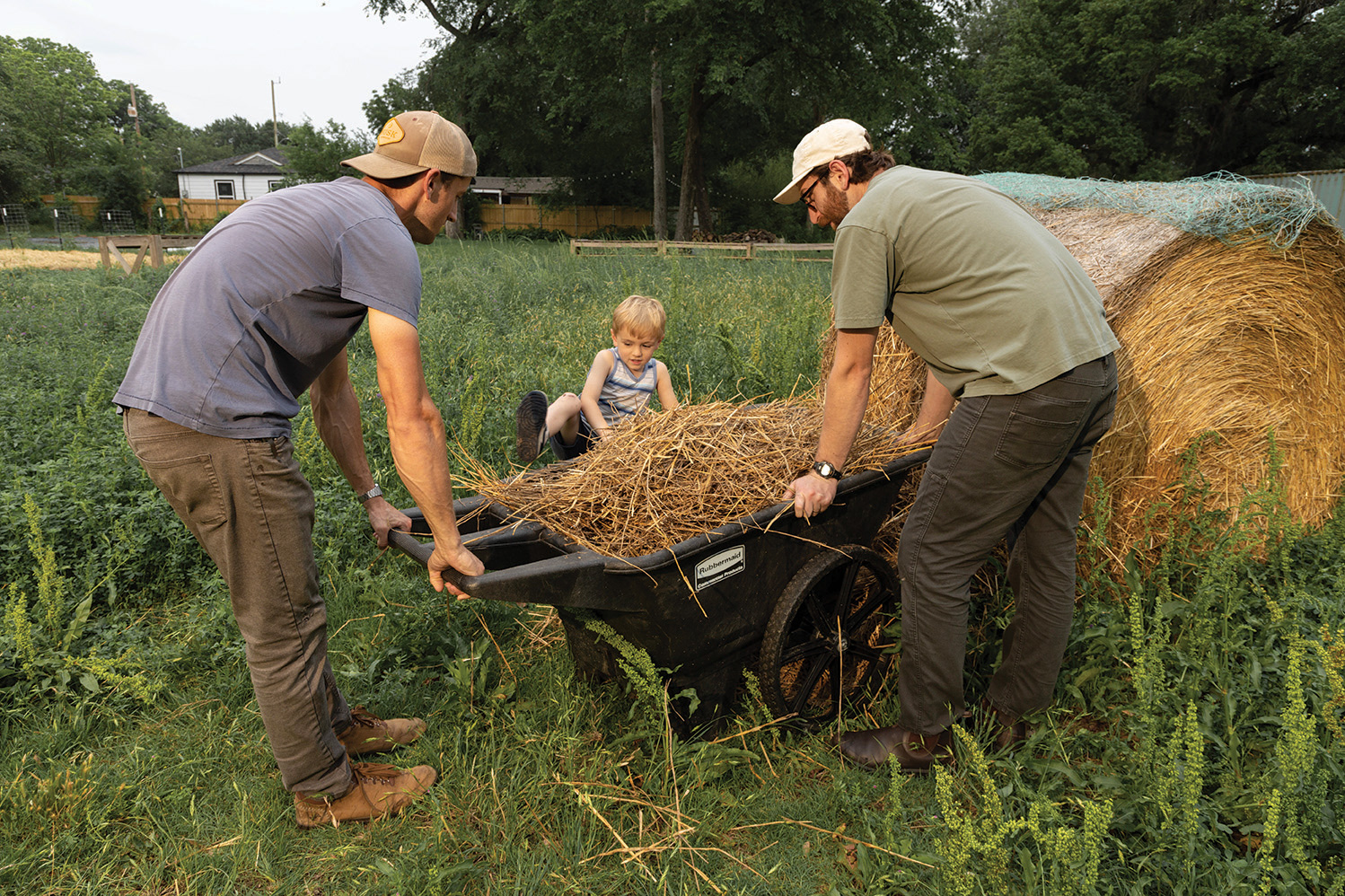Like many things, heirloom tomatoes struggle to grow in the Texas heat.
Which is a shame, Eric Nystrom says, because they are “bred for flavor” and revered in the culinary world.
So Nystrom, alongside Andrew Cagle and the three other board members of Elmwood Farms, decided to celebrate the urban farm’s first birthday with a tomato-growing experiment.
Elmwood Farms is nearly an acre of land that sits on the corner of South Polk Street and Nolte Drive. Run by a small but dedicated group of friends who describe themselves as “farming nerds” and “soil enthusiasts,” it’s a space for cultivating both crops and community.
And for finding creative ways to grow new and exciting produce.
After reading about a seed company called Row 7, Cagle bought a pack of seeds for a new tomato called the midnight roma. Located in Portland, Row 7 cross-pollinates popular produce to create new varieties of vegetables that are flavorful and adapted for climate.
But the climate of Portland is nothing like that of Texas, so Elmwood Farms is taking it a step further with their first midnight roma crop. Once the tomatoes are ready, they will harvest the fruit and replant the seeds of the plants that grew the most successfully through the Texas summer.
In theory, they will breed a drought- and heat-resistant heirloom-adjacent tomato variety that will be “viable” for the Texas climate while still “celebrating what makes an heirloom tomato great.”
The idea for an urban farm in Elmwood was originally Cagle’s.
An Oak Cliff resident since 2019, he’s a cinematographer by trade but discovered a passion for gardening after buying a home and planting in his backyard.
“My gardening energy was overflowing from the containment of our yard, and so I was always looking around. I’d see a bare patch of grass, and my mind kind of started, you know, creating these invisible ideas of what can be there,” Cagle says.
On an afternoon walk with a friend, Cagle pointed at a patch of land near downtown Elmwood. It was only an eighth of an acre, but already, Cagle could see the potential for an urban farm.
The friend he was walking with, Doug Klembara, was immediately in on the idea. He brought in Nystrom, who was an “easy sell” due to his passion for (and graduate education in) soil science. Two other Elmwood residents, Collin Martin and Matt Glenn, were brought in to joining the farm’s leadership team as well.
But after several years, the farm outgrew the space. (And their landlord kindly suggested they leave.) For a moment, it seemed Elmwood Farms would be no more.
“We want to be like a hub, a community, and a place for people to gather and know the land and their neighbor. So that was what we lamented that we didn’t have any more even if we could continue growing at our houses,” Nystrom says.
That’s when a friend showed Cagle the vacant plot of land across the street from Tyler Station. It was a major size upgrade, but they knew Elmwood Farms had to continue.
And so, just over a year ago, Elmwood Farms 2.0 was created.

In the last year, the urban farmers have planted sunflowers and zinnias, basil and cowpeas, okra and lentils.
This summer will be the first “harvestable crop” for Elmwood Farms. Barley that will eventually be used by Oak Cliff Brewing Co. stands tall near the entrance of the farm.
Cagle says he will likely encourage volunteers to harvest and take home the cowpeas, and small pop-up sales of the okra and lentils may be a weekend occurrence.
Flower stems will be sold once the sunflowers and zinnias bloom, and as for the midnight roma tomatoes, Nystrom and Cagle are already thinking about recipes.
The farm has hosted ticketed meals cooked by local chefs, monthly volunteer days, a music festival and DJ performances.
The farm is a nonprofit, and those ticketed events — along with a sponsorship from Methodist Dallas Medical Center — help the men keep the farm running “month to month,” Cagle says. Most urban farms are nonprofits, he says, because the economics of farming are inherently disadvantageous for small-scale projects.
“But that’s OK. I think that the value that a space like this offers is that it’s offered to the public,” Cagle says.
The farm hosts volunteer days the second Saturday of every month, but Nystrom says he is happy to give the gate code to “anyone who wants” to regularly take advantage of the neighborhood green space.
When Nystrom describes the experience of farming the soil of Elmwood alongside his friends while educating and feeding his community, he sounds like a man driven by a mission that leaves him spiritually nourished.
“We’re not just brains in a jar. We’re minds, we’re bodies and hearts and spirits,” Nystrom says. “Slowing down together and breaking bread together and all of those more intangibles, that’s what [Elmwood Farms] is about. Farming is a vehicle for connection.”
To put it less philosophically, working the farm has “been a blast.”








